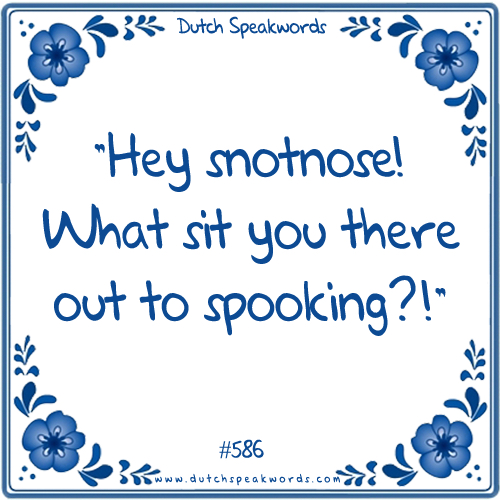Last year, the Anglo-Netherlands Society of London, to mark its centenary, published North Sea Neighbours, a collection of wide-ranging essays on important aspects of Dutch-British interaction across the sea. In his contribution, Professor Reinier Salverda of University College London (UCL) zooms in on the big and often funny impact that interaction has on each other’s language.
Door Reinier Salverda
In 1992, in the run-up to the Maastricht Treaty, I was contacted at UCL by the BBC’s Pronunciation Unit. They wanted to know how to instruct their newsreaders on the proper way of saying ‘Maastricht’ in Dutch. I explained that it is Maastrícht, with main stress on the second syllable, and this was duly incorporated into the BBC’s Pronunciation Guidelines. Then, along came Dutch prime minister Kok who, at his closing press conference, undid our efforts by saying Máastricht, with main stress on the initial syllable. The rest, as they say, is history, and today, Kok’s English adopted stress pattern is heard everywhere, as in the pronunciation of Àmsterdam instead of Amsterdàm.
A similar Anglo-Dutch language mix-up – this time not in sound but in meaning (and also, a bit less successful) – happened when an earlier Dutch prime minister, Gerbrandy, wartime leader of the Dutch Government in exile in London, arrived for his first meeting with his British counterpart, meaning to say, in good Dutch fashion, ‘Goedendag’, and greeting him with a hearty ‘Goodbye, Mr Churchill!’ – which of course rather startled and amused his host.
With a little more success an Amsterdam shoe shop in the 1990s launched a poster showing five kids jumping up and down in their brandnew shoes underneath the headline ‘Spring’s in the air!’. This sentence looked and sounded English, and meant something too [‘Springtime is upon us’], but the point it made was effectively a Dutch one, to a Dutch audience, playing on the word ‘spring’, meaning ‘to jump’ in Dutch. And some twenty years later, in 2018, the same headline was used again to advertise a springtime NASA event of the Dutch Mad Science Organisation.
Such crossovers between our two languages – mixing elements from English into Dutch, from Dutch into English – are not uncommon in Anglo-Dutch communication. As a consequence, in between the respective standard varieties of Received Pronunciation BBC English (RP) in the United Kingdom and Algemeen Beschaafd Nederlands (ABN) in the Netherlands, we can today identify a wide range of intermediate interlanguage varieties, usually arising through oral contact in everyday colloquial language contact situations.
In the cases mentioned above we see how, while we are producing language, we simultaneously also produce variation, all the more so in language contact. In the course of the long history that we shared during centuries of contact, exchange and transfer across the North Sea, mixing in language learning has generated varieties such as Netherdutch and Nederdutch.
Read the full article on the low countries website by clicking HERE.

Laat een reactie achter